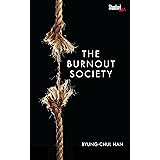Buy new:
-43% $15.42$15.42
Save with Used - Acceptable
$9.49$9.49
Ships from: Amazon Sold by: ExcellentIdea

Download the free Kindle app and start reading Kindle books instantly on your smartphone, tablet, or computer - no Kindle device required.
Read instantly on your browser with Kindle for Web.
Using your mobile phone camera - scan the code below and download the Kindle app.

OK
 Audible sample Sample
Audible sample Sample 


Know-It-All Society: Truth and Arrogance in Political Culture Hardcover – August 13, 2019
Purchase options and add-ons
Winner • National Council of Teachers of English - George Orwell Award for Distinguished Contribution to Honesty and Clarity in Public Language
The “philosopher of truth” (Jill Lepore, The New Yorker) returns with a clear-eyed and timely critique of our culture’s narcissistic obsession with thinking that “we” know and “they” don’t.
Taking stock of our fragmented political landscape, Michael Patrick Lynch delivers a trenchant philosophical take on digital culture and its tendency to make us into dogmatic know-it-alls. The internet―where most shared news stories are not even read by the person posting them―has contributed to the rampant spread of “intellectual arrogance.” In this culture, we have come to think that we have nothing to learn from one another; we are rewarded for emotional outrage over reflective thought; and we glorify a defensive rejection of those different from us.Interweaving the works of classic philosophers such as Hannah Arendt and Bertrand Russell and imposing them on a cybernetic future they could not have possibly even imagined, Lynch delves deeply into three core ideas that explain how we’ve gotten to the way we are:
• our natural tendency to be overconfident in our knowledge;
• the tribal politics that feed off our tendency;
• and the way the outrage factory of social media spreads those politics of arrogance and blind conviction.
In addition to identifying an ascendant “know-it-all-ism” in our culture, Lynch offers practical solutions for how we might start reversing this dangerous trend―from rejecting the banality of emoticons that rarely reveal insight to embracing the tenets of Socrates, who exemplified the humility of admitting how little we often know about the world, to the importance of dialogue if we want to know more. With bracing and deeply original analysis, Lynch holds a mirror up to American culture to reveal that the sources of our fragmentation start with our attitudes toward truth. Ultimately, Know-It-All Society makes a powerful new argument for the indispensable value of truth and humility in democracy.
- Print length256 pages
- LanguageEnglish
- PublisherLiveright
- Publication dateAugust 13, 2019
- Dimensions5.8 x 0.9 x 8.6 inches
- ISBN-101631493612
- ISBN-13978-1631493614
Frequently bought together

Similar items that may deliver to you quickly
Editorial Reviews
Review
― Chad Comello, Booklist
"Lynch offers an insightful, timely message."
― Kirkus Reviews
"This book is both a treasure and a treat―that rare volume that is philosophically rich, politically relevant, and lyrically written."
― Eboo Patel, author of Out of Many Faiths
"A sharp and engaging critique of the tribal arrogance that’s so common in contemporary life, by one of our leading public philosophers. Lynch has a lot of provocative ideas―about social media, the rise of Donald Trump, whether we have to listen to neo-Nazis, and much else―and his rich book is a delight to engage with."
― Paul Bloom, Professor of Psychology, Yale University, and author of Against Empathy: The Case for Rational Compassion
"Michael Lynch has done it. Finally, someone has answered the question that has exasperated so many in this ‘post-truth’ era: Why are some people unconvinced by facts? The answer lies not in irrationality but identity. In these polarized times, to question someone’s beliefs is to question their sense of self. In this book, Lynch brilliantly demonstrates that a solution to the problem of belief lies not just in valuing truth and evidence but reforming some of the toxic mental attitudes that exist not just in others but ourselves."
― Lee McIntyre, author of The Scientific Attitude
"A timely book on an important topic in our political culture today. Lynch is just the person to bring philosophical insight to these challenges―of trust, expertise, disagreement, and the prospects for conversation across the deep political chasms of our day."
― Sanford Goldberg, author of To the Best of Our Knowledge
"If we have learned anything over these past few years, it is that democracy is difficult. In this essential book for our times, Michael Lynch unflinchingly lays out its central conundrums in painfully recognizable ways, and bravely offers hope, and perhaps, some ways out. A remarkable achievement."
― Jason Stanley, author of How Fascism Works
"Michael Patrick Lynch’s book uses the classics of philosophy to examine why our society, in a modern age of technology and education, is increasingly centered around a dysfunctional, narcissistic rejection of objectivity and reason. Know-It-All Society challenges us to consider why we arrogantly refuse to listen to each other, no matter what our politics or our beliefs."
― Tom Nichols, author of The Death of Expertise
"Professor Lynch not only diagnoses the reasons for our current predicament but also suggests ways in which we can begin to challenge our tribal arrogance. Know-It-All Society is an important (and wonderfully readable) book."
― David Edmonds, host of BBC’s The Big Idea
About the Author
Product details
- Publisher : Liveright (August 13, 2019)
- Language : English
- Hardcover : 256 pages
- ISBN-10 : 1631493612
- ISBN-13 : 978-1631493614
- Item Weight : 13.6 ounces
- Dimensions : 5.8 x 0.9 x 8.6 inches
- Best Sellers Rank: #1,092,341 in Books (See Top 100 in Books)
- #796 in Epistemology Philosophy
- Customer Reviews:
About the author

Michael Patrick Lynch is Provost Professor of the Humanities and Board of Trustees Distinguished Professor of Philosophy at the University of Connecticut. Lynch is the author or editor of ten books, including most recently, Know-it-All Society, The Internet of Us, Truth as One and Many and the New York Times Sunday Book Review Editor’s pick, True to Life. Lynch has held grants from the National Endowment for the Humanities, The Andrew Mellon Foundation and the John Templeton Foundation among others. He has spoken at TED, The Nantucket Project, Chautauqua, and South by Southwest. In 2019 he was awarded The George Orwell Award, which recognizes writers who have made outstanding contributions to the critical analysis of public discourse.
Customer reviews
Customer Reviews, including Product Star Ratings help customers to learn more about the product and decide whether it is the right product for them.
To calculate the overall star rating and percentage breakdown by star, we don’t use a simple average. Instead, our system considers things like how recent a review is and if the reviewer bought the item on Amazon. It also analyzed reviews to verify trustworthiness.
Learn more how customers reviews work on Amazon-
Top reviews
Top reviews from the United States
There was a problem filtering reviews right now. Please try again later.
Among the new features, this time around, the Internet and the sheer scale of many modern corporations contribute to the problem. The Internet market is filled with people who actively seek to limit their exposure to ideas running counter to their own. Providing individuals tools to build these barriers to alternatives (the same tools can explore alternate viewpoints) is just good business. Individuals, of their own free will, choose to use them to limit perspectives to which they are exposed.
The Internet is but one facet of this problem of know-it-all arrogance infecting polities all over the world. Still, the pain is both acute and different in the U.S. and Europe because these are among the few places in the world (Australia, Japan, among others) where political and ideological alternatives are not criminalized. Lynch lays out the problem and its consequences both for the health of society and “the truth,” which he points out, is always out there even if not directly accessible or utterly denied by postmodern critics.
While the book is good in general terms, Lynch elides specific problems. He asks at one point, “must we listen to Nazis?” In other words, must a tolerant society tolerate intolerance? He asks the question but never really answers other than to point out that opinion on this goes both ways.
If this is not a great book, it is a good one and another solid addition to the literature about a dangerous sickness in Western cultures.
Michael Lynch’s latest book is a timely elaboration on this phenomena, including the psychological, sociological, and technological reasons for its perpetuation.
Here’s a quick outline of the problem: those that know the least are the most certain, because, unlike those who know the most, they are blissfully unaware of the extent of their own ignorance and of the true complexity of the world. This is the psychological origin of overconfidence and intellectual arrogance and is confirmed by the much-replicated research on the Dunning-Kruger effect and the “illusion of explanatory depth.”
Further, our technology and culture make things much worse. Most people get their information online, and from a small sliver of the web that caters to the views they already hold (resulting in rampant confirmation bias). Once online, people encounter the most passionate, dogmatic personalities that create the impression of infallibility and expertise, while the more knowledgeable—and therefore more modest personalities—are ignored or labeled as “meek” or “ineffectual.”
The dogmatists therefore attract the most followers, likes, and shares, spreading information that is superficial, simplistic, and emotionally volatile. People then argue, not to get at the truth of an issue that is far beyond their own knowledge or expertise, but to flaunt their identity as a member of whatever tribe is most closely associated with that particular belief.
Lynch brilliantly elaborates on these points using timely examples and the wisdom of several prominent philosophers including Socrates, Montaigne, Bertrand Russell, Hannah Arendt, John Dewey, and others. He shows how beliefs lead to convictions and then to contempt for all those who don’t share the same convictions. Politics then becomes a game of identity for everyone, as the search for truth is replaced by the accumulation of badges of identity that are then shared via social media.
Is there a way out of this? The final chapter of the book presents a solution: the embodiment of the most underrated political virtue of them all—intellectual humility. Strip away the passion and we are left with glaring deficiencies in our knowledge. The world is more complex than we suppose and our knowledge and intelligence are less impressive than we suppose—as repeatedly confirmed by psychological research. This doesn’t mean that we should abandon the concept of truth; it means we should pursue it with more humility and rigor.
Lynch provides us with an example to emulate—Socrates. Socrates recognized the nature of his own wisdom in that he had no pretensions to knowledge and sought to challenge every one of his beliefs. In many ways, Socrates represents the ideal of a solution: a dispassionate and humble pursuit of the truth using rigorous logic and respect for evidence, dialogue, and discussion. This is what makes the institutions of science, academia, and the press so critical for the continuation of rational dialogue and mutual respect that must be present for any democracy to work. What matters most, in the long run, is not the conclusions we reach, so much as the manner in which we reach them. If we abandon the concepts of truth, fallibility, civility, and rational debate—in service to short term political gains—all hope is lost.
Michael Smith, an avowed liberal, makes a case for humble inquiry instead of know-it-all arrogance to put out the fires of division and realize the benefits of democracy.
Truth is necessary to maintain democracy but is a byproduct of searching and reflecting, not only upon one’s own but also upon others’ knowledge and experience.
Rational open mindedness to test one’s convictions and respect for other people if not for their convictions may go a long way toward achieving a functioning democracy.











